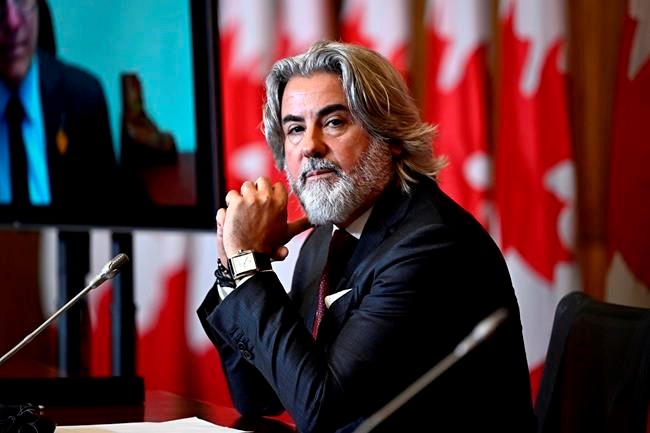Canada's heritage minister is leaving the door open to regulating new social media platform Threads under a bill forcing Google and Meta to pay publishers for content they link to or repurpose.
Asked Wednesday whether he had given any thought to capturing Meta's new social network in the Online News Act known as Bill C-18, Pablo Rodriguez said, "that's going to be eventually included in the regulation."
"It could be captured by the bill. We're looking at that," he said.
"We don't know yet, but it's going to be more precise as we go into regulations."
The text and images platform has garnered at least 100 million users since it sprang up last Wednesday, after the act targeting Meta properties Facebook and Instagram along with Google's search engine and news products received royal assent on June 22.
The act has since sparked a tit-for-tat relationship between the digital giants and the federal government.
The two tech companies, who lobbied against the legislation, have promised to block access to news from Canadian publishers, while Rodriguez has refused to back down on seeking compensation for Canada's journalism industry.
In his latest salvo, he pulled the federal government's $10 million in annual advertising spend from Meta's platforms last week.Â
News and telecommunications businesses Quebecor, Bell Media, Torstar Corp., Cogeco, and Postmedia Network Canada Corp. made the same move, which was replicated by the Université de Montréal on Wednesday.
Rodriguez has spared Google such treatment despite its promise to block Canadian publishers' content because he believes its concerns will be managed by regulations the government is still formulating as it works towards the bill's formal implementation later this year.
"Google decided to stay at the table and keep discussing with us. Meta took the bully approach and decided not to discuss with us anymore," said Rodriguez.
"Since then, we met with Google on Friday... are working on having an update this week."
Rodriguez declined to discuss the specifics of the conversations he has been having with Google, but said they have been "open, frank discussions."
"I think they are going in the right direction," he said.
Google declined to comment on its discussions with the minister, but referred The Canadian Press to a blog, where its president of global affairs said, "We plan to participate in the regulatory process and will continue to be transparent with Canadians and publishers as we move forward."Â
"We hope that the government will be able to outline a viable path forward," Kent Walker said.
Meta declined to comment.
Rodriguez's conversations with Google come as he released a document Monday saying that he was proposing a financial cap on how much Google and Facebook would have to provide in compensation to media companies that it based on a platformâs estimated Canadian revenues, and would be specific to each platform and their position within the news marketplace.
The proposal reaffirms that non-monetary offerings to news organizations, such as training, could be included as exemption grounds and works to provide clarity on what constitutes a âsignificant portionâ of independent local news businesses, Indigenous news outlets, and official-language minority community news outlets.
"I think that we demonstrated what we've been saying all along: that a lot of the clarification that (the digital giants) requested is coming  through the regulations," Rodriguez said.
While he didn't get into specifics around what the financial cap digital giants must pay could be or how many organizations they will need to broker deals with, he stressed that the regulations will touch every province and territory, impact English and French publications and ensure Indigenous media and outlets of all sizes are represented.
CBC, the country's public broadcaster, could also gobble up some cash through the act, Rodriguez said, but that will come down Google and Meta and who they chose to strike deals with.
While such matters are still be worked out, Rodriguez said he remains open to meeting with Meta.
"We don't want confrontation. We were very disappointed by Meta's attitude, which is in our opinion, irresponsible," he said.
"We're not acting the same way, we're saying guys, come at the table."
This report by The Canadian Press was first published July 12, 2023.
---
Meta funds a limited number of fellowships that support emerging journalists at The Canadian Press.
Tara Deschamps, The Canadian Press



